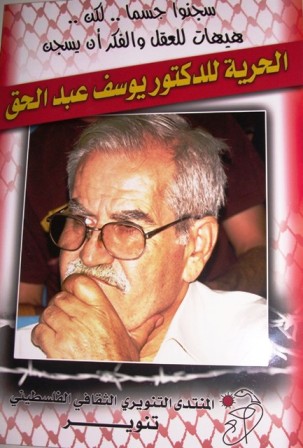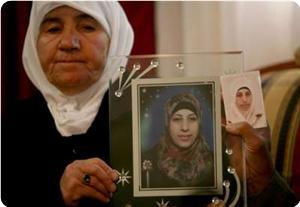Tag: Administrative Detention
-
42 days of hunger strike: Take action to save Hassan Safady from dying in administrative detention
by Silvia and Andreas 13 April 2012 | International Solidarity Movement, West Bank Please SUBMIT pictures in solidarity with Hassan Safady FREE HASSAN SAFADY FREE ALL PRISONERS IN ADMINSTRATIVE DETENTION Today Hasan Safady entered into his 42nd day of hunger strike. Ten months ago, he was brutally arrested from his home in the old city…
-
Extension of administrative detention of Dr. Yousef Abdul Haq for the second time
31 March 2012 | Tanwer Human beings are born free, but we are surrounded by restrictions everywhere Jean-Jacques Rousseau Today on the thirty-sixth anniversary of the Palestinian Land Day, which confirms for our people the unity and integrity of our case, the unity of its land, and the right of return and self-determination, the Israeli…
-
Palestinian female detainee Hana’a Shalabi on tenth day of hunger strike
25 February 2012 | Palestine Information Center Detained young woman Hana’a Shalabi has entered her tenth day of hunger strike protesting her administrative detention despite being released late last year in the prisoners’ exchange deal between Hamas and Israel. Attallah Abulsabh, the minister of prisoners in the Haneyya government, said that Hana’a, 28, is the…



